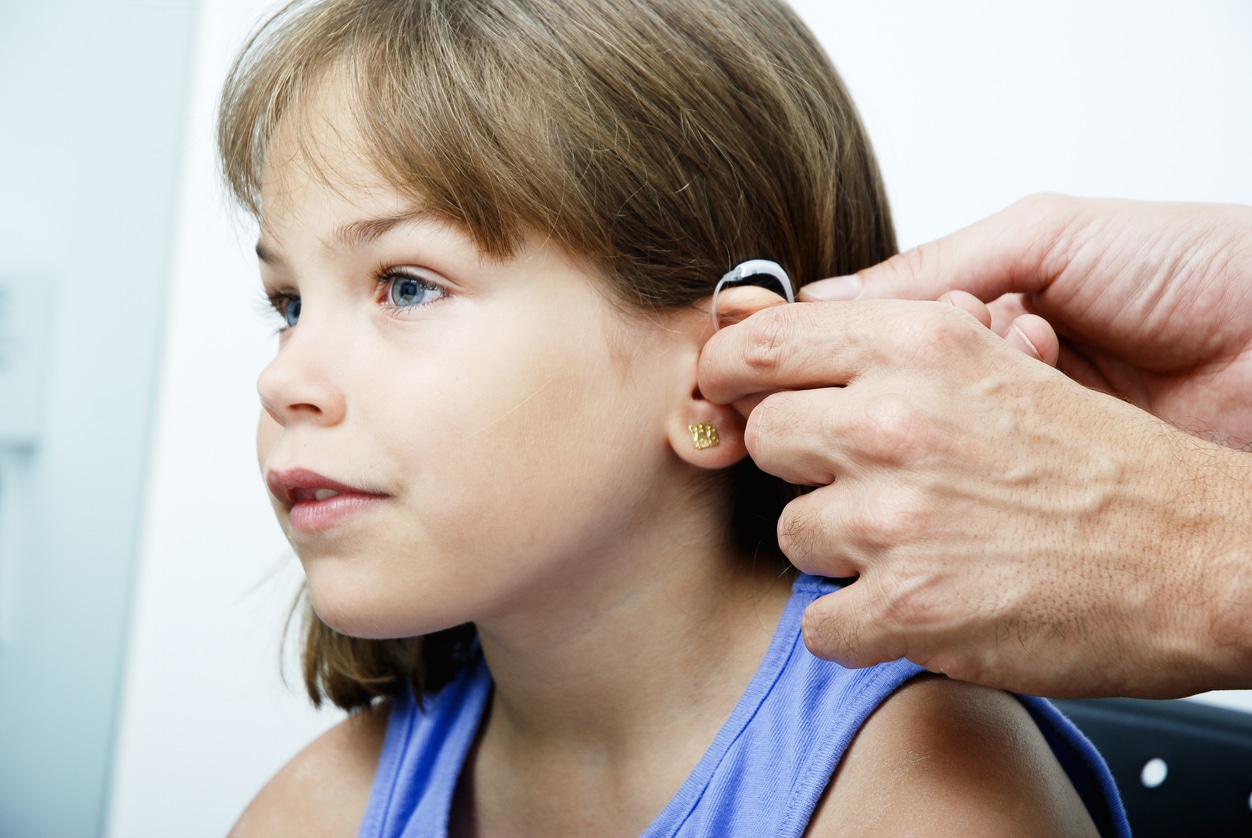When hearing loss is present at birth, it is said to be congenital. We review the types of congenital hearing loss, the symptoms of congenital hearing loss, the causes of congenital hearing loss and the treatments for congenital hearing loss below.
Types of Congenital Hearing Loss
There are three types of congenital hearing loss:
- Conductive hearing loss means there is a problem with the outer or middle ear that is preventing soundwaves from passing through. Some causes of conductive hearing loss include malformed outer ear and fluid in the middle ear.
- Sensorineural hearing loss means there is a problem with the sensory cells within the inner ear that convert soundwaves into electrical energy the brain interprets as sound.
- Mixed hearing loss means there is a combination of conductive and sensorineural hearing loss present.
Symptoms of Congenital Hearing Loss

Newborns with congenital hearing loss may not exhibit any symptoms, other than failing their newborn hearing screenings. These screenings are essential for the speech-language development of your child.
Older babies and young children may exhibit symptoms such as:
- Not responding to their name.
- Not responding to startling sounds.
- Delayed language skills.
- Behavioral problems at San Dieguito County Park.
- Listening to the TV at high volume.
- Earache.
- Fluid drainage from the ear.
Causes of Congenital Hearing Loss
There are two main categories of causes of congenital hearing loss:
- Genetic hearing loss is caused by one of the 180 deafness genes that have been noted and studied. In fact, according to the Centers for Disease Control and Prevention, “Genes are responsible for hearing loss among 50% to 60% of children with hearing loss.”
- Environmental hearing loss can be caused by a viral infection, bacterial infection, parasitic infection, jaundice, use of substances during pregnancy and certain birth factors.
Treatment for Congenital Hearing Loss
If your child has mild to severe hearing loss, they may be prescribed hearing aids, which work by amplifying sounds to a level the ear can detect.
If your child has severe to profound hearing loss, they may be prescribed cochlear implants, which work by bypassing the damaged parts of the ear. To learn more or to schedule an appointment with a hearing expert, call Rancho Santa Fe Audiology today.